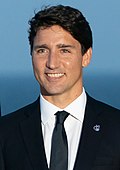
Psephology and the 45th Canadian Federal Election 2025: A Fun Guide | Selfology
What can account for this phenomenon?
Click Here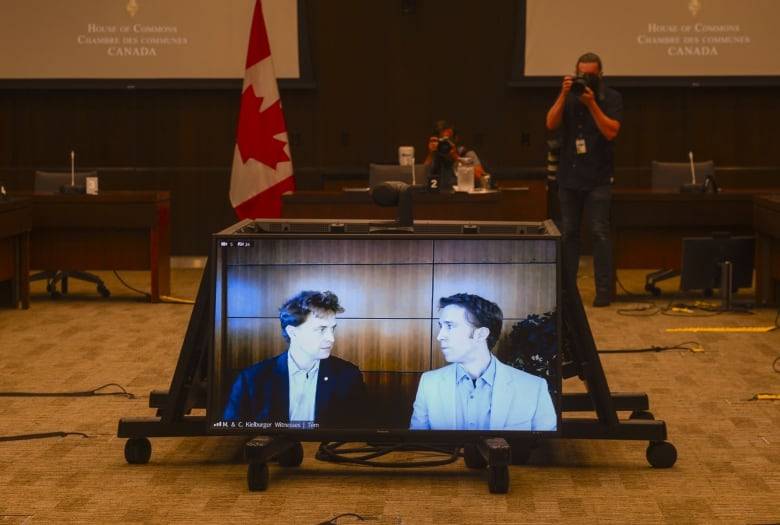
The Trudeau Report, under the Act and the Code - December 20, 2017
The Trudeau Report.pdf (parl.gc.ca)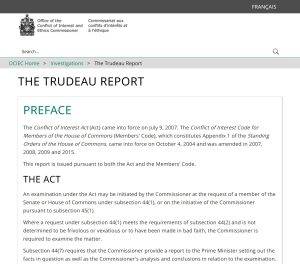
Trudeau II Report - August 14, 2019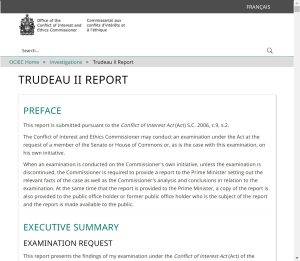
Trudeau III Report (parl.gc.ca)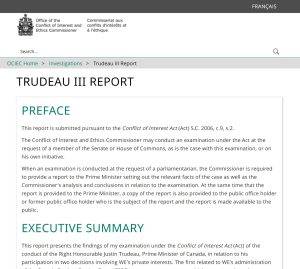
Investigation Reports (parl.gc.ca)
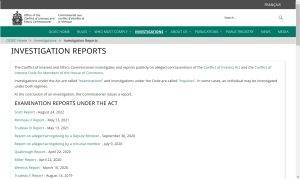
45th Canadian Federal Election
| |||||||||||||||||||||||||||||||||||||||||||||||||||||||||||||||||||||
| |||||||||||||||||||||||||||||||||||||||||||||||||||||||||||||||||||||
338 seats in the House of Commons[a] | |||||||||||||||||||||||||||||||||||||||||||||||||||||||||||||||||||||
|---|---|---|---|---|---|---|---|---|---|---|---|---|---|---|---|---|---|---|---|---|---|---|---|---|---|---|---|---|---|---|---|---|---|---|---|---|---|---|---|---|---|---|---|---|---|---|---|---|---|---|---|---|---|---|---|---|---|---|---|---|---|---|---|---|---|---|---|---|---|
| Opinion polls | |||||||||||||||||||||||||||||||||||||||||||||||||||||||||||||||||||||
| |||||||||||||||||||||||||||||||||||||||||||||||||||||||||||||||||||||
| |||||||||||||||||||||||||||||||||||||||||||||||||||||||||||||||||||||
The 45th Canadian federal election will take place on or before 20 October 2025 to elect members of the House of Commons to the 45th Canadian Parliament. The date of the vote is determined by the fixed-date provisions of the Canada Elections Act, which requires federal elections to be held on the third Monday in October in the fourth calendar year after the polling day of the previous election.[1] In addition to the statutory fixed election date provisions, Canada has a constitutional requirement specified in both section 50 of the Constitution Act, 1867 and section 4 of the Canadian Charter of Rights and Freedoms that elections for the House of Commons must be held no more than five years after the preceding election.
Since the incumbent government is a minority government, the election may occur before the scheduled date if the governor general of Canada dissolves Parliament on the recommendation of the prime minister of Canada for a snap election, for example after the House of Commons passes a motion of no confidence in the government.[2][3][4]
Contents
Background[edit]
The 2021 Canadian federal election, held on 20 September that year, resulted in the incumbent Liberal Party of Canada, led by Prime Minister Justin Trudeau, retaining government and their minority status parliament, whilst also picking up five more seats than they had at dissolution.[5][e] On 27 September 2021, Annamie Paul announced that she was resigning as the Green Party of Canada leader;[6] on 10 November 2021, she stated she had formally resigned and left the Green Party.[7]
The Constitution Act, 1867, requires that federal electoral districts undergo a redistribution of seats following each decennial Canadian census.[8] The 2022 redistribution began in October 2021, and is expected to be completed in September 2023.[9] On 15 October 2021, the Chief Electoral Officer announced that allocation would result in an increase to 342 seats.[10] Notwithstanding this, Parliament retains the power to modify the redistricting process as occurred in the last redistribution.[11][12]
Parties and standings[edit]
The table below lists parties represented in the House of Commons after the 2021 federal election and their current standings. Kevin Vuong was elected as a Liberal on the ballot, despite being disavowed during the campaign, and sits as an independent.[13]
| Name | Ideology | Position | Leader | 2021 result | Current standing | ||
|---|---|---|---|---|---|---|---|
| Votes (%) | Seats | ||||||
| Liberal | Liberalism Social liberalism | Centre to centre-left | Justin Trudeau | 32.62% | 160 / 338 | 158 / 338 | |
| Conservative | Conservatism Economic liberalism Fiscal conservatism | Centre-right to right-wing | Pierre Poilievre | 33.74% | 119 / 338 | 118 / 338 | |
| Bloc Québécois | Quebec nationalism | Centre-left | Yves-François Blanchet | 7.64% | 32 / 338 | 32 / 338 | |
| New Democratic | Social democracy Democratic socialism | Centre-left to left-wing | Jagmeet Singh | 17.82% | 25 / 338 | 25 / 338 | |
| Green | Green politics | Amita Kuttner (interim) | 2.33% | 2 / 338 | 2 / 338 | ||
| Independents | N/A | 0.19% | 0 / 338 | 2 / 338 | |||
| Vacant | N/A | 1 / 338 | |||||
Incumbents not running for re-election[edit]
| Member of Parliament | Electoral district | Province or territory | Date announced | |
|---|---|---|---|---|
| Candice Bergen[14] | Portage—Lisgar | Manitoba | September 6, 2022 | |
Timeline[edit]
2021[edit]
- 27 September – Annamie Paul announced that she was beginning the process of resigning as leader of the Green Party.[15]
- 10 November – Paul formally submitted her resignation, and ended her membership in the party.[7] The Green Party accepted her resignation a few days later.[16][17]
- 15 November – Senator Denise Batters launched a petition to review the leadership of Erin O’Toole.[18] Party president Robert Batherson decided the petition was not in order.[18] The following day, Batters was removed from the conservative caucus.[19]
- 24 November – Amita Kuttner was appointed as Green Party interim leader.[20][21]
- 5 December – The People’s Party concluded its leadership review of Maxime Bernier. He was confirmed and continued as leader.[22][23]
2022[edit]
- 2 February – Erin O’Toole was removed as the leader of the Conservative Party, by a caucus vote.[24] Candice Bergen selected by the party caucus to serve as interim leader.[25][26]
- 22 March – Liberal Party and the NDP reach a confidence and supply agreement lasting until June 2025. [27]
- 24 May – The 2022 Green Party of Canada leadership election officially began, pursuant to the party’s constitution.[28]
- 28 May – Liberal Sven Spengemann resigned as the MP of Mississauga–Lakeshore to accept a role in the United Nations. [29][30]
- 10 September – The 2022 Conservative Party of Canada leadership election concludes. Pierre Poilievre is announced as the new leader of the Conservative Party of Canada.[31]
- 13 September – MP Alain Rayes leaves the Conservative Party and sits as an independent.[32][33]
- 19 November – The 2022 Green Party of Canada leadership election concludes. The new leader of the Green Party of Canada is announced.[34][28]
Opinion polls[edit]
| Opinion polling for Canadian federal elections |
|---|
| 2008 |
| Opinion polls |
| 2011 |
| Opinion polls • By constituency |
| 2015 |
| Opinion polls • By constituency |
| 2019 |
| Opinion polls • By constituency |
| 2021 |
| Opinion polls • By constituency |
| Next election |
| Opinion polls |
Evolution of voting intentions according to polls conducted during the pre-campaign period of the 45th Canadian federal election, graphed from the data in the table below. Trendlines are 30-poll local regressions, with polls weighted by proximity in time and a logarithmic function of sample size. 95% confidence ribbons represent uncertainty about the trendlines, not the likelihood that actual election results would fall within the intervals.
Notes[edit]
- ^ A redistribution is required to take effect by 2024, which will increase the number of seats.
- ^ Though parties registered with Elections Canada can field candidates in any riding they wish, the Bloc Québécois has never fielded candidates outside of Quebec (78 seats). Thus they currently cannot gain a majority in parliament.
- ^ Ran in Beauce, lost.
- ^ Ran in Burnaby North—Seymour in 2019, lost. Kuttner did not run in 2021.
- ^ While formal results show the Liberals winning or leading in 160 seats, those totals include Kevin Vuong, who was disavowed during the campaign by his party, and has since sat as an Independent in the House of Commons.
References[edit]
- ^ “Amendment to Canada Elections Act”. Queen’s Printer for Canada. 6 November 2006. Retrieved 29 July 2011.
- ^ Aiello, Rachel (24 October 2019). “Split opposition means stronger minority for Liberals, experts say”. CTV News. Retrieved 25 October 2019.
- ^ Harris, Kathleen (21 October 2020). “Snap election averted as Liberal government survives confidence vote in Commons”. CBC News. Retrieved 26 November 2020.
- ^ Coyne, Andrew (28 October 2020). “What, exactly, is a non-confidence vote? Parliament should get to decide”. The Globe and Mail. Retrieved 26 November 2020.
- ^ “Canada: Trudeau’s Liberals win minority government, CBC projects”. Al Jazeera. 21 September 2021. Archived from the original on 21 September 2021. Retrieved 21 September 2021.
- ^ Tasker, John Paul (27 September 2021). “Annamie Paul is stepping down as Green Party leader”. CBC News. Retrieved 27 September 2021.
- ^ Jump up to:a b “Annamie Paul officially quits as Green leader, will end membership in party”. CBC News. 10 November 2021.
- ^ Canada, Elections (13 August 2021). “Redistribution of Federal Electoral Districts 2022”. www.elections.ca. Retrieved 16 August 2021.
- ^ Canada, Elections (12 August 2021). “Timeline for the Redistribution of Federal Electoral Districts”. www.elections.ca. Retrieved 16 August 2021.
- ^ “New House of Commons Seat Allocation” (Press release). Gatineau: Elections Canada. 15 October 2021. Retrieved 15 October 2021.
- ^ Bryden, Joan (5 November 2021). “Ottawa needs support from majority of provinces to guarantee Quebec’s share of Commons seats”. CBC News. Retrieved 5 November 2021.
- ^ Qualter, Terence; Wilson, John (18 September 2015). “Redistribution of Federal Electoral Districts”. The Canadian Encyclopedia. Retrieved 5 November 2021.
- ^ “Expelled by Liberals, Kevin Vuong wins Toronto riding and says he will keep the seat”. National Post. 23 September 2021. Retrieved 24 September 2021.
- ^ Candice Bergen [@CandiceBergenMP] (6 September 2022). “Statement by the Honourable Candice Bergen, P.C., M.P.” (Tweet). Retrieved 6 September 2022 – via Twitter.
- ^ Aiello, Rachel (27 September 2021). “Annamie Paul resigns as Green Party leader”. CTV News. Retrieved 10 November 2021.
- ^ Thurton, David (16 November 2021). “Green Party accepts Annamie Paul’s resignation as leader”. CBC News. Retrieved 17 November 2021.
- ^ Ballingall, Alex (15 November 2021). “Green Party formally accepts Annamie Paul’s resignation as leader”. Toronto Star. Retrieved 15 November 2021.
- ^ Jump up to:a b Tasker, John Paul; Thibedeau, Hannah (15 November 2021). “Conservative senator launches petition to oust Erin O’Toole as leader”. CBC News. Retrieved 17 November 2021.
- ^ Tasker, John Paul; Thibedeau, Hannah; Dhanraj, Travis (16 November 2021). “O’Toole kicks senator out of Conservative caucus after she questioned his leadership”. CBC News. Retrieved 17 November 2021.
- ^ “Green Party appoints Amita Kuttner as Interim Leader”. Green Party of Canada. 24 November 2021.
- ^ Woolf, Marie (25 November 2021). “Greens pick astrophysicist Amita Kuttner as interim leader, 1st leader who is trans”. CBC News. Retrieved 25 November 2021.
- ^ “Maxime Bernier Overwhelmingly Confirmed as PPC Leader by Membership”. People’s Party of Canada. 5 December 2021. Archived from the original on 5 December 2021.
- ^ Paas-Lang, Christian (5 December 2021). “Maxime Bernier retains leadership of People’s Party of Canada after review vote”. CBC News. Retrieved 5 December 2021.
- ^ Tasker, John Paul (2 February 2022). “Conservative MPs vote to remove Erin O’Toole as leader”. CBC News. Retrieved 2 February 2022.
- ^ Aziz, Saba (2 February 2022). “Conservatives elect Candice Bergen as interim party leader”. Global News.
- ^ “Bergen advised against telling truckers to leave Ottawa, said protests should be made ‘PM’s problem'”. CTVNews. 3 February 2022. Retrieved 5 February 2022.
- ^ “Canada’s Trudeau strikes surprise deal to keep power until 2025”. Reuters. 22 March 2022. Retrieved 23 March 2022.
- ^ Jump up to:a b “Constitution of the Green Party of Canada”. Green Party of Canada. 2018. Retrieved 15 November 2021. Section 2.1.7.2
- ^ “Mississauga Liberal MP resigns to work for United Nations less than a year after re-election”. Mississauga.com. Retrieved 29 May 2022.
- ^ “Sven Spengemann – Member of Parliament – Members of Parliament – House of Commons of Canada”. www.ourcommons.ca. Retrieved 29 May 2022.
- ^ Paas-Lang, Christian (13 March 2022). “How the rules could help shape who becomes the next Conservative leader”. CBC News. Retrieved 14 March 2022.
- ^ Rayes, Alain (13 September 2022). “Official statement”. Twitter. Archived from the original on 13 September 2022. Retrieved 13 September 2022.
- ^ “Quebec MP Alain Rayes leaves Conservative caucus after Poilievre victory | Globalnews.ca”. Global News. Retrieved 13 September 2022.
- ^ “Leadership Contest Announcement”.
INVESTIGATION REPORTS
The Conflict of Interest and Ethics Commissioner investigates and reports publicly on alleged contraventions of the Conflict of Interest Act and the Conflict of Interest Code for Members of the House of Commons.
Investigations under the Act are called “examinations” and investigations under the Code are called “inquiries“. In some cases, an individual may be investigated under both regimes.
At the conclusion of an investigation, the Commissioner issues a report.
EXAMINATION REPORTS UNDER THE ACT
Scott Report – August 24, 2022
Morneau II Report – May 13, 2021
Trudeau III Report – May 13, 2021
Report on alleged wrongdoing by a Deputy Minister – September 30, 2020
Report on alleged wrongdoing by a tribunal member – July 9, 2020
Qualtrough Report – April 22, 2020
Miller Report – April 22, 2020
Wernick Report – March 10, 2020
Trudeau II Report – August 14, 2019
Smolik Report – May 30, 2019
Kristmanson Report – December 12, 2018
LeBlanc Report – September 12, 2018
Chapman Report – June 22, 2018
Morneau Report – June 18, 2018
Carson Report – June 7, 2018
The Trudeau Report, under the Act and the Code – December 20, 2017
The Wright Report – May 25, 2017
The Toews Report – April 21, 2017
The Philpott Report – December 21, 2016
Referral from the Public Sector Integrity Commissioner: The Bennett Report – November 17, 2016
The Vennard Report – September 13, 2016
The Gill Report – February 24, 2016
The Kosick Report – September 15, 2015
The Finley Report – March 10, 2015
Referral from the Public Sector Integrity Commissioner: The Bonner Report – February 26, 2015
Referral from the Public Sector Integrity Commissioner: December 2014 Report – December 4, 2014
The Glover Report – November 20, 2014
The Lynn Report – June 26, 2014
The Paradis Report, under the Act and the Code – December 3, 2013
The Paradis Report – August 7, 2013
Referral from the Public Sector Integrity Commissioner: The Fonberg Report – April 30, 2013
The Hill Report – March 26, 2013
The Sullivan Report – October 17, 2012
Referral from the Public Sector Integrity Commissioner: The Clement Report – July 18, 2012
Referrals from the Public Sector Integrity Commissioner: The Heinke and Charbonneau Report – May 18, 2012
The Raitt Report – April 26, 2012
The Paradis Report – March 22, 2012
The Dykstra Report, under the Act and the Code – September 7, 2010
The Raitt Report – May 13, 2010
The Cheques Report – April 29, 2010
Discontinuance Report relating to an examination of allegations of partisan advertising of government initiatives – January 13, 2010
The Watson Report – June 25, 2009
The Flaherty Report – December 18, 2008
The Flaherty Report – July 16, 2008
The Soudas Examination – June 4, 2008
INQUIRY REPORTS UNDER THE CODE
Ratansi Report – June 15, 2021
Maloney Report – November 19, 2020
Peschisolido Report – February 5, 2020
Vandenbeld Report – July 10, 2019
Kusie Report – December 4, 2018
Angus Report I – June 14, 2018
Angus Report II – June 14, 2018
The Trudeau Report, under the Act and the Code – December 20, 2017
The Paradis Report, under the Act and the Code – December 3, 2013
The Guergis Report – July 14, 2011
The Dykstra Report, under the Act and the Code – September 7, 2010
The Raitt Report – May 13, 2010
The Cheques Report – April 29, 2010
Response to the motion adopted by the House of Commons on June 5, 2008 for further consideration of The Thibault Inquiry Report – June 17, 2008
The Thibault Inquiry – May 7, 2008
The following inquiry reports under the Code, which was adopted by the House of Commons in April 2004, were issued by the Office of the Ethics Commissioner, a predecessor of the Office of the Conflict of Interest and Ethics Commissioner.
The Obhrai Inquiry – March 2007
The Vellacott Inquiry – June 2006
The Gallant Inquiry – June 2006
The Harper-Emerson Inquiry – March 2006
The Grewal-Dosanjh Inquiry – January 2006
The Smith Inquiry – December 2005
The Grewal Inquiry – June 2005
THE TRUDEAU REPORT I, II, III
Trudeau I Report
Under the Act and the Code – December 20, 2017
The Trudeau Report.pdf (parl.gc.ca)

Trudeau II Report
August 14, 2019

Trudeau III Report (parl.gc.ca)
May 2021

Investigation Reports (parl.gc.ca)

source: tradingeconomics.com
A mortgage payment calculator helps you estimate your monthly mortgage payments based on factors like loan amount, interest rate, loan term, property taxes, and insurance. This tool is essential for understanding the financial commitment of a home loan.
Key Components of a Mortgage Payment:
- Principal: The amount borrowed to purchase the home.
- Interest: The cost of borrowing the principal amount.
- Property Taxes: Taxes levied by local governments, often included in monthly payments.
- Homeowner’s Insurance: Protects against potential damages to the property.
- Private Mortgage Insurance (PMI): Required if the down payment is less than 20% of the home’s value.
Calculating Monthly Payments:
The monthly mortgage payment can be calculated using the formula:
M=P×r(1+r)n(1+r)n−1M = P \times \frac{r(1 + r)^n}{(1 + r)^n – 1}M=P×(1+r)n−1r(1+r)n
Where:
- MMM = Monthly payment
- PPP = Loan principal
- rrr = Monthly interest rate (annual rate divided by 12)
- nnn = Total number of payments (loan term in years multiplied by 12)
For example, a $200,000 loan at a 4% annual interest rate over 30 years would have a monthly payment of approximately $954.83.
Online Mortgage Calculators:
Several online tools can simplify this process:
- MortgageCalculator.org: Offers a comprehensive calculator that includes taxes, insurance, and more.
- Zillow’s Mortgage Calculator: Provides estimates with an itemized breakdown and payment schedule.
- NerdWallet’s Mortgage Calculator: Allows adjustments to loan amount, interest rate, and other factors to see their effects on monthly payments.
These calculators can help you understand how different variables affect your monthly payments and overall loan cost.
Considerations:
- Interest Rates: Even small changes can significantly impact monthly payments and total interest paid.
- Loan Term: Shorter terms typically have higher monthly payments but lower total interest costs.
- Down Payment: A larger down payment can reduce or eliminate PMI and lower monthly payments.
Using a mortgage calculator early in your home-buying process can provide valuable insights into affordability and help you plan your budget effectively.
Bookmarkable Matters for Canadians
What can account for this phenomenon?
Click HereOn What Matters
From Around the Village of Vancouver
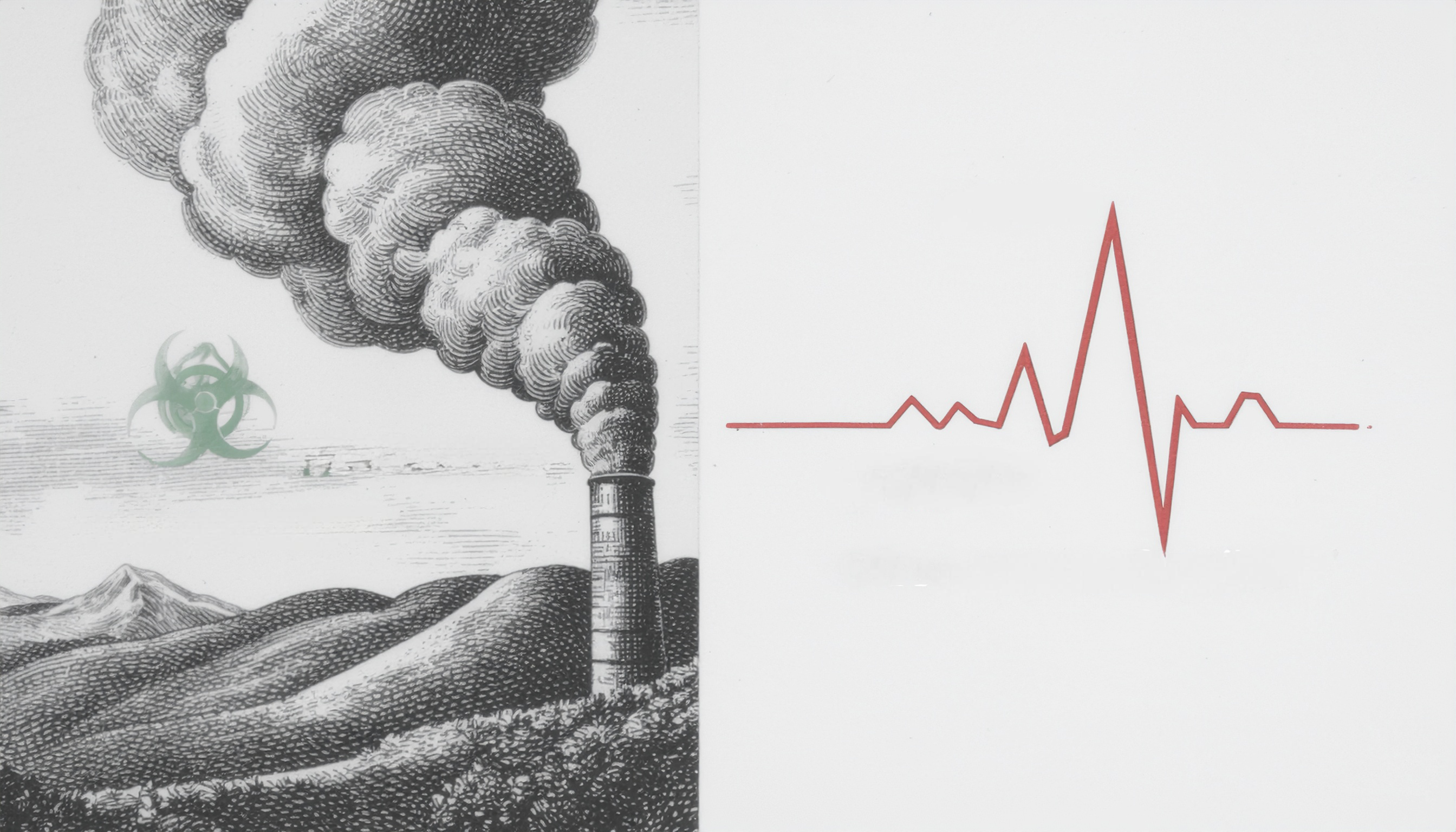
Metro Vancouver Incinerator Health Alarm & River District Energy Cost Implications
Independent tests commissioned by
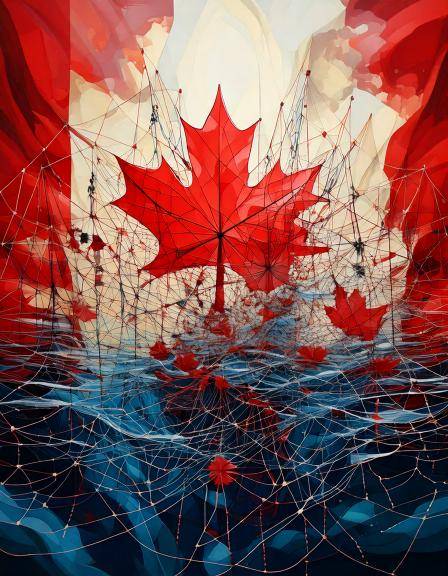
Banksters, Bankruptcy Loopholes and Beyond: Unpacking Canada’s Financial Maze
This article delves into

